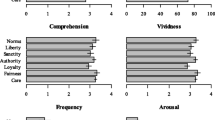Abstract
In the recent article “A new approach to manipulation arguments,” Patrick Todd seeks to reframe a common incompatibilist form of argument often leveraged against compatibilist theories of moral responsibility. Known as manipulation arguments, these objections rely on cases in which agents, though they have met standard compatibilist conditions for responsibility, have been manipulated in such a way that they fail to be blameworthy for their behavior. Traditionally, in order to get a manipulation argument off the ground, an incompatibilist must illustrate that a manipulated agent is not at all responsible for her behavior. Todd argues that this is an unnecessarily heavy burden—the incompatibilist need only show that the presence of manipulation mitigates ascriptions of responsibility. Though innovative, Todd fails to present his modified manipulation argument in a way that poses a true threat to the compatibilist. In fact, by introducing a scalar conception of moral responsibility, Todd gives the compatibilist the tools necessary to better handle the incompatibilist’s original manipulation argument.
Similar content being viewed by others
Notes
It is important to note that the incompatibilist is not arguing that all instances of manipulation present problems for the compatibilist. The incompatibilist and compatibilist both agree that the relevant cases of manipulation at issue are those that do not undermine any compatibilist conditions for moral responsibility. In this paper, I will deal only with these relevant cases of manipulation.
To be clear, a hard-liner need not reject the No Difference Thesis. In this paper, I am exploring just one strategy against the Modified Manipulation Argument. Another very common strategy is to take issue with Todd’s conflation of blameworthiness and responsibility. Notice that Q1, Q2, and my reconstruction of Q3 are framed in terms of blameworthiness. But it is not at all clear that blameworthiness and responsibility go hand in hand. A compatibilist could argue that even if readers revise the degree to which they blame Plum for killing White, such a revision does not necessitate a revision in ascriptions of responsibility. Fischer et al. (2007) takes on this distinction in his response to Pereboom. However, I again appeal to McKenna’s remarks on such a strategy—one can easily imagine a scenario in which Plum meets both conditions for blameworthiness and responsibility (McKenna 2009, p. 7). Thus, though I find the conflation of blameworthiness and responsibility somewhat troubling, this distinction will not bear on my argument in this paper.
References
Fischer, J., Kane, R., Pereboom, D., & Vargas, M. (2007). Four views of free will. Malden, MA: Blackwell.
McKenna, M. (2008). A hard-line reply to Pereboom’s four-case manipulation argument. Philosophy and Phenomenological Research, 77, 142–159.
McKenna, M. (2009). Compatibilism & desert: Critical comments on four views of free will. Philosophical Studies, 144, 3–13.
McKenna, M. (2012). Moral responsibility, manipulation arguments, and history: Assessing the resilience of nonhistorical compatibilism. Journal of Ethics, 16, 145–174.
Mele, A. (2005). A critique of Pereboom’s ‘four-case argument’ for incompatibilism. Analysis, 65, 75–80.
Pereboom, D. (2001). Living without free will. Cambridge: Cambridge University Press.
Sellars, A. (1926). The Loeb–Leopold case. Clark, NJ: The Lawbook Exchange, Ltd.
Todd, P. (2011). A new approach to manipulation arguments. Philosophical Studies, 153, 127–133.
Acknowledgments
I would like to thank Michael McKenna, David Schmidtz, and David Glick for their insightful comments, as well as the audiences at the University of Washington Philosophy Graduate Conference on Responsibility and the University of Arizona Freedom Center Brown Bag Series.
Author information
Authors and Affiliations
Corresponding author
Rights and permissions
About this article
Cite this article
Tierney, H. A maneuver around the modified manipulation argument. Philos Stud 165, 753–763 (2013). https://doi.org/10.1007/s11098-012-9974-8
Published:
Issue Date:
DOI: https://doi.org/10.1007/s11098-012-9974-8




